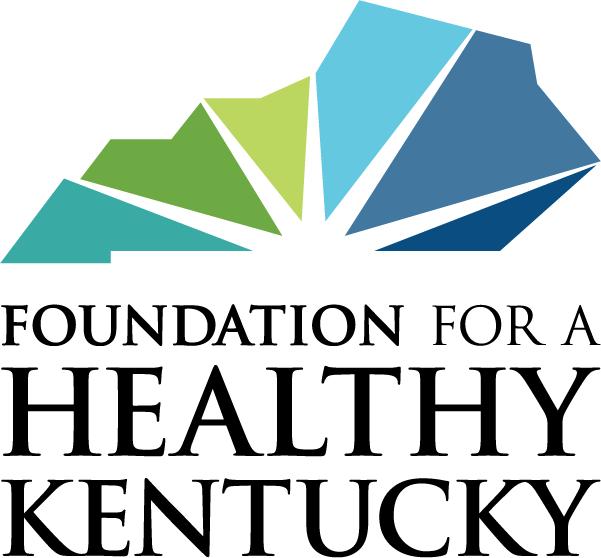
-

-

-

-

Get the Facts about COVID-19
We’ve compiled resources addressing some of the most common questions related to the coronavirus and COVID-19 vaccines.
-

COVID-19 and Pregnancy
Information and resources for women who are pregnant, trying to become pregnant, and breastfeeding.
Supported by the Kentucky Association of Health Plans.
-
FACT: The COVID-19 vaccines available in the U.S. cannot and will not give you COVID-19. They DO NOT contain the SARS-CoV-2 live virus. The protein that helps your immune system recognize and fight the virus does not cause infection of any sort.
-
FACT: Despite the speed with which the vaccines were developed, no shortcuts were taken in judging their safety or effectiveness. Research and development of vaccines like these have been underway for decades. The vaccine developers didn’t skip any steps, rather they conducted some of the steps on an overlapping schedule to gather data faster. They also had more collaboration, technology and funding that allowed them to work quickly. Learn more about developing COVID-19 vaccines.
-
FACT: Nearly all the ingredients in COVID-19 vaccines are also ingredients in many foods, including fats, sugars and salts. Exact ingredients vary by manufacturer. After the body produces an immune response, it discards all the vaccine ingredients.
COVID-19 vaccines DO NOT contain preservatives, tissues (including aborted fetal cells), antibiotics, food proteins, medicines, latex, or metals. These COVID-19 vaccines were NOT developed using fetal tissue, and they do not contain any material, such as implants, microchips or tracking devices. They also do NOT contain ingredients like preservatives, tissues (like aborted fetal cells), antibiotics, food proteins, medicines, latex, metals, or microchips.
Learn more about what ingredients are in Pfizer-BioNTech, Moderna, Novavax, or Johnson & Johnson/Janssen COVID-19 vaccines.
-
FACT: Both messenger RNA (mRNA) and viral vector COVID-19 vaccines work by delivering instructions to our cells to start building protection against the virus that causes COVID-19. After the body produces an immune response, it discards all vaccine ingredients as part of its normal body function. Learn more about how vaccines work.
-
FACT: There are short-term mild or moderate vaccine reactions that resolve without complication or injury. This includes irritation at the injection site, and some people also developed headache, chills, fatigue or muscle pain lasting for a day or two. These are signs that the vaccine is working to stimulate your immune system. If symptoms last more than two days, you should call your doctor. Severe side effects, such as severe allergic reactions, or anaphylaxis, have been extremely rare. If you have allergies, especially ones that require you to carry an EpiPen, discuss the COVID-19 vaccine with your doctor who can assess your risk and provide more information about if and how you can get vaccinated safely.
-
FACT: Getting a COVID-19 vaccine is safer and a more dependable way to build immunity to COVID-19 than getting sick from the virus. Most people get a high level of protection against COVID-19 when they receive the vaccine. Getting a vaccine can provide added protection for people who have already had COVID-19.
The CDC released a study in August 2021 of Kentuckians that showed people who were infected with COVID-19 in 2020, and who remained unvaccinated through June 2021, were 2.34 times more likely to be reinfected compared to those who had gotten fully vaccinated after having the virus.
Natural immunity can provide protection from getting COVID-19 again, but the level of protection may vary depending on how mild or severe the illness was, time since infection, and a person’s age.
Getting a COVID-19 vaccination is a safer and more dependable way to build immunity to COVID-19 than getting sick with the virus, which can cause severe illness and death, and sometimes long-COVID symptoms. We cannot predict who will have mild or severe illness. Learn more about long-term health issues after a COVID-19 infection.
-
FACT: Kids can get and transmit COVID-19, including severe cases that require hospitalization. While children do not die from the virus at the same rate as adults, they can still die from COVID-19 or get seriously ill.
Getting eligible children and teens vaccinated against COVID-19 can help keep them from getting really sick and protect them from short- and long-term complications and symptoms.
Vaccinating children can also help keep them in school or daycare, and safety participating in sports, playdates, and other group activities.
COVID-19 vaccines are recommended for everyone ages 6 months and older. Boosters are recommended for children ages 5 years and older. Learn more about COVID-19 vaccines for children.
-
FACT: There is no evidence that any vaccines, including COVID-19 vaccines cause fertility problems in women or men.
COVID-19 vaccines and boosters are recommended for women who are pregnant, trying to get pregnant, or who might become pregnant in the future, as well as their partner.
Data shows pregnant women and those who were recently pregnant are more likely to get very sick from COVID-19 compared to people who are not pregnant or have not recently been pregnant. Additionally, if a woman gets COVID-19 during pregnancy, she is at an increased risk of complications that can affect the pregnancy and developing baby. These include delivering a pre-term (earlier than 37 weeks) or stillborn infant.
Research also shows newborns of vaccinated mothers are at lower risk for developing COVID-19 and being hospitalized.
Learn more about COVID-19 vaccines and people who would like to have a baby.
